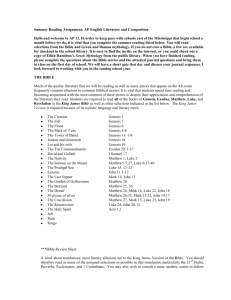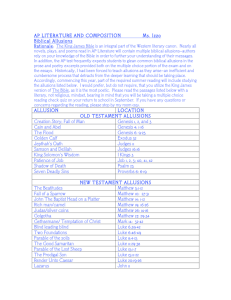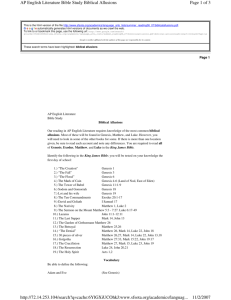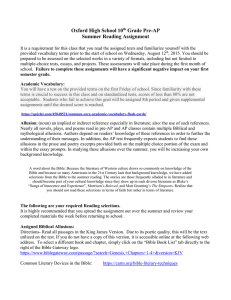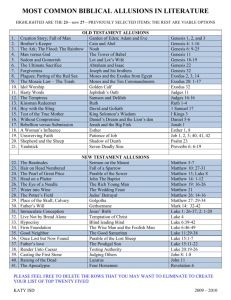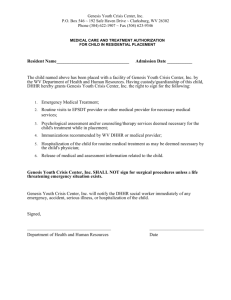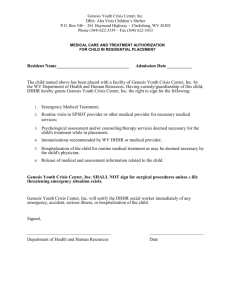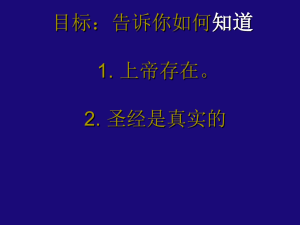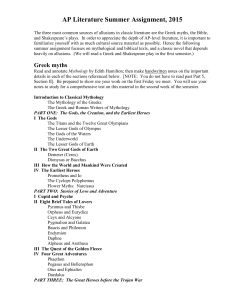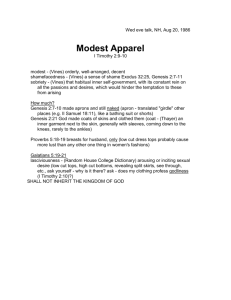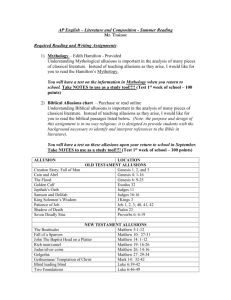AP Literature Summer Reading
advertisement
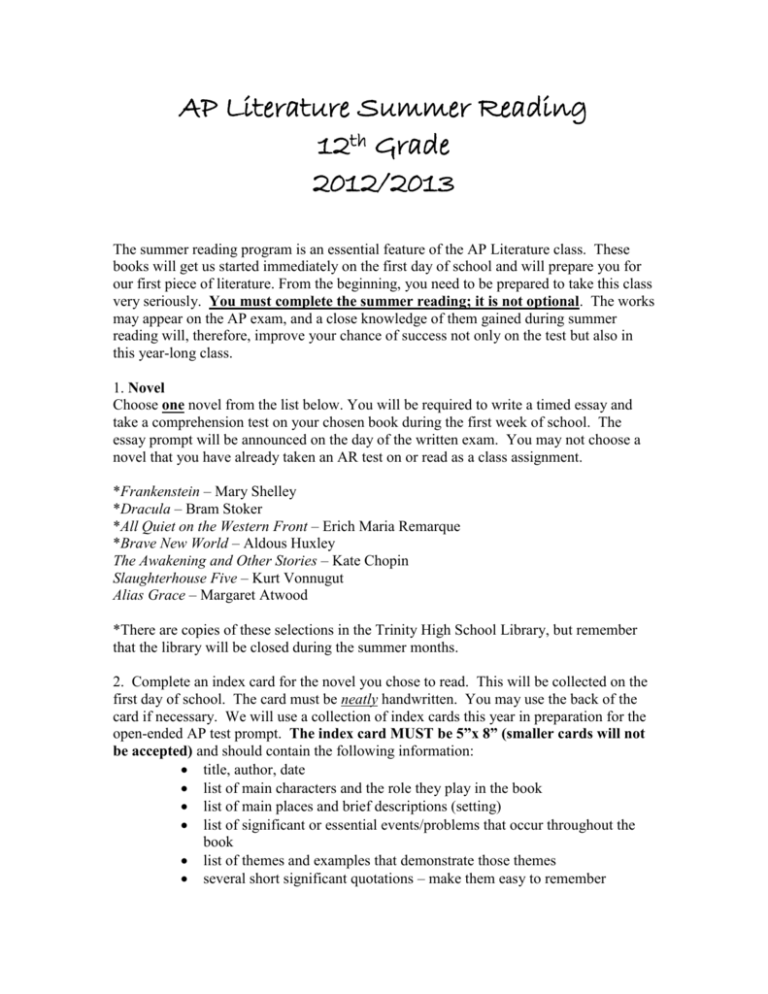
AP Literature Summer Reading 12th Grade 2012/2013 The summer reading program is an essential feature of the AP Literature class. These books will get us started immediately on the first day of school and will prepare you for our first piece of literature. From the beginning, you need to be prepared to take this class very seriously. You must complete the summer reading; it is not optional. The works may appear on the AP exam, and a close knowledge of them gained during summer reading will, therefore, improve your chance of success not only on the test but also in this year-long class. 1. Novel Choose one novel from the list below. You will be required to write a timed essay and take a comprehension test on your chosen book during the first week of school. The essay prompt will be announced on the day of the written exam. You may not choose a novel that you have already taken an AR test on or read as a class assignment. *Frankenstein – Mary Shelley *Dracula – Bram Stoker *All Quiet on the Western Front – Erich Maria Remarque *Brave New World – Aldous Huxley The Awakening and Other Stories – Kate Chopin Slaughterhouse Five – Kurt Vonnugut Alias Grace – Margaret Atwood *There are copies of these selections in the Trinity High School Library, but remember that the library will be closed during the summer months. 2. Complete an index card for the novel you chose to read. This will be collected on the first day of school. The card must be neatly handwritten. You may use the back of the card if necessary. We will use a collection of index cards this year in preparation for the open-ended AP test prompt. The index card MUST be 5”x 8” (smaller cards will not be accepted) and should contain the following information: title, author, date list of main characters and the role they play in the book list of main places and brief descriptions (setting) list of significant or essential events/problems that occur throughout the book list of themes and examples that demonstrate those themes several short significant quotations – make them easy to remember brief summary of the ending and how the author achieved closure If you think you might have trouble obtaining an index card, see Mrs. Sprague before the last day of school. To enable the students to gain a greater understanding of the various biblical allusions (a brief reference to a person, event, or place, real or fictitious, or to a work of art) present in the works of the upper level English Literature course, the students are asked to read the Bible stories listed below as part of their summer reading. 3. Biblical Allusions Our reading in AP English Literature requires knowledge of the most common biblical allusions. If there is more than one location given, be sure to read each account and note any differences. Read the following stories in the King James Version of the Bible; you will be tested on your knowledge on the first day of school. We will not be engaging in any religious discussions; we will be looking at the use of biblical stories in literature, and you will only be tested on your comprehension of the stories not your beliefs. If you do not own a King James Version of the Bible, you may use the following website to access an online version: http://bibleresources.bible.com/bible_kjv.php . Bibles can usually be checked out at local libraries as well. Please read the following: The Creation – Genesis chapter 1 The Fall – Genesis chapter 3 The Flood – Genesis chapter 6 The Mark of Cain – Genesis chapters 4-6 The Tower of Babel – Genesis chapter 11:1-9 Sodom and Gomorrah – Genesis, chapter 18 Lot and his Wife – Genesis chapter 19 The Ten Commandments – Exodus chapter 20:1-17 David and Goliath – I Samuel chapter 17 The Nativity Story – Matthew chapter 1, Luke chapter 2 The Sermon on the Mount – Matthew chapter 5:3-7:27, Luke chapter 6:17-49 Lazarus – John chapter 11:1-12:11 The Last Supper – Mark chapter 14, John chapter 13 The Betrayal – Matthew chapters 25, 26 A study guide is attached to help you comprehend the necessary elements of each story; it will not need to be turned in. Genesis Chapter 3 The Fall: 1. What appeal did the serpent make to Eve? 2. What did Adam and Eve do after they sinned? Why? 3. What was Adam’s excuse for his sin? 4. How did God block access to the Garden of Eden? Genesis Chapter 6 The Flood: 1. Why was the Lord “grieved” with mankind? 2. Describe the ark which Noah was commanded to build. 3. Describe how Noah got the animals he needed for the ark. Genesis Chapters 4-6 The Mark of Cain: 1. What was Cain’s major sin? Exodus Chapter 20 The Ten Commandments: 1. Name three of the ten commandments and briefly describe what each one means. I Samuel Chapter 17 David and Goliath: 1. Describe Goliath, the champion of the Philistines. 2. What is the challenge Goliath gives to the armies of Israel when he comes onto the battlefield? 3. Describe the physical appearance and character of David. 4. Why does David think he can beat Goliath? 5. How did David kill Goliath? Describe the scene. Matthew Chapter 1, Luke Chapter 2: 1. Why did Joseph want to “put away” Mary secretly? 2. What did the angel tell Joseph about the child? 2. How did God punish Cain? Why didn’t he kill him? Genesis Chapter 11:1-9 The Tower of Babel: 1. What was the purpose of the tower of Babel? 3. What was Caesar Augustus’ decree? 4. What did the angels tell the shepherds? 5. What did Jesus do in the temple when he was 12? 2. Why did God dislike the tower? 3. Why did God confuse the language of the people? Genesis Chapter 18 Sodom and Gomorrah 1. Who were the three men who visited Abraham? 2. For what purpose did they come? 6. What did he tell Mary and Joseph when they found him there? Matthew Chapter 5:3-7:27, Luke Chapter 6:17-49 The Sermon on the Mount 1. The first few verses of Matthew chapter 5 are called the Beatitudes. Briefly summarize what Jesus is teaching the people to be like. 3. How did Sarah react to the message? Why? 4. Why did Abraham intervene for Sodom? 5. Why did God agree to “negotiate” with him? Genesis Chapter 19 Lot and His Wife: 1. How did the men of Sodom react to the visitors in Lot’s house? 2. What offer did Lot make to keep the men away from the visitors? 3. When the men threatened Lot, what did the visitors do? 2. What does Jesus say about the laws of murder and adultery? Matthew Chapters 25, 26 1. Briefly retell the parable of the ten virgins. 2. What comparison is being made and what lesson is to be learned. 3. Why did Judas go to the chief priests? 4. When Christ was arrested what did the disciples do? 4. How was Lot rewarded for his loyalty and faith? 5. How did Peter deny Jesus three times just as Jesus said he would? 5. What punishment is inflicted upon Lot’s wife? Why? 6. What was Peter’s reaction when he realized what he had done?
